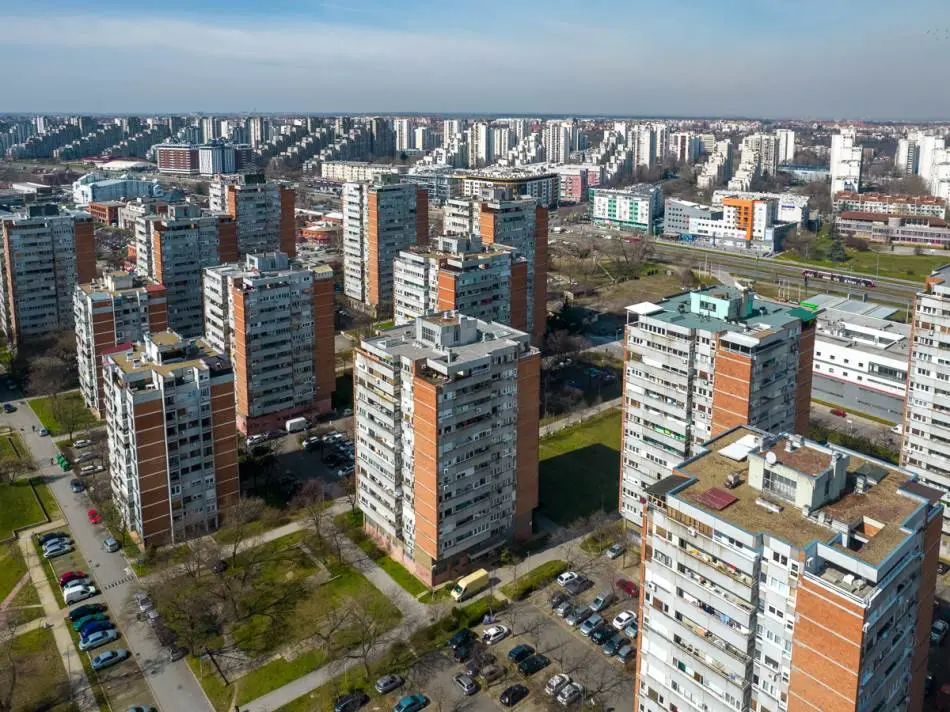
Rising real estate prices and decreasing demand for loans in Serbia
Citizens' demand for loans decreased in the first quarter of this year due to the rise in real estate prices, according to bankers in the Bank Credit Activity Survey published by the National Bank of Serbia (NBS). Due to the unfavorable situation on the real estate market, as well as fewer purchases of durable consumer goods, the demand for bank loans has decreased, at least in the first three months of 2023.
Harsher conditions
Banks expect a more favorable situation in the second quarter, Nova ekonomika writes. "In the first quarter of this year, banks continued to tighten conditions for the population, but to a lesser extent than in the fourth quarter of 2022. "The tightening applied to dinar loans to a slightly greater extent than to loans with a currency clause," states the Report of the National Bank of Serbia.
The tightening of lending conditions for households is also expected during the second quarter of 2023, according to the research. The stricter lending conditions also applied to dinar cash loans (including loans for refinancing) and housing and consumer loans with a currency clause.
The banks assessed that the increased costs of credit sources and the rise in real estate prices, accompanied by uncertainty about the economic situation, contributed the most to the tightening of lending conditions for citizens, but also for the economy.
In December, the National Bank of Serbia (NBS) predicted the possibility that citizens who have problems with repaying their loans could ask the bank for a reprogram that includes extending the loan repayment period.
Veroljub Dugalić, on the other hand, says that "the longer it takes to pay off an obligation, a bank loan, the higher the share of interest in that debt." "You just have to calculate the total amount you would pay if you didn't take advantage of that grace period extension." Or, if you decide to do so, how much more will you pay than you would have paid without extending the repayment period", explained Dugalić.
According to him, the possibility foreseen by the NBS at this moment can represent "a little relief". There are categories of citizens for whom every relief currently helps them to survive, because their monthly installment, for example, will not be 15,700, but 11,300 dinars.
“That's what it means to them at this point.” But in five or three years, as the term of the obligation is extended, you end up paying more than you would have paid without extending the repayment term."
It is clear that citizens still have an increased need for cash due to inflationary pressures, which, admittedly, should subside by the end of the year.
Inflationary pressures
Year-on-year inflation in Serbia in April was 15.1 percent, and the latest inflation projection has not changed compared to February. The peak of inflation is behind us, and its return to the target (about three percent) is expected in the middle of 2024, said Željko Jović, vice-governor of the National Bank of Serbia (NBS).
In the meantime, the NBS expects a gradual decrease in inflation in the second half of this year, a slowdown in price growth, so 14 percent inflation is expected in June, reports Poslovni.hr.
Tržište nekretnine, 07. Jun. 2023.
Latest news from category: Tržište nekretnine
- Where the Ultra-Wealthy Buy Their Second Home 09. Aug. 2025.
- Hong Kong Real Estate Market Desperately Seeks Chinese Investors 07. Aug. 2025.
- New Eurovilla Branch Opened in Osijek 14. Jul. 2025.
- Price trends for apartments in new construction in Croatia: 1.7.2024. - 1.7.2025 12. Jul. 2025.
- Broker Agency recommends the best regions for real estate investment in Croatia in 2025. 23. Feb. 2025.
- BiH: VAT Refund for First-Time Homebuyers 25. Oct. 2024.
- Apartment prices in Serbia are sky-high, is an additional increase realistic? 12. Oct. 2024.
- Croatia is at the top of Europe in terms of real estate price growth 10. Oct. 2024.
- Introduction of a new real estate tax in the Republic of Croatia 24. Sep. 2024.
Popular news
- Fabulous real estate prices in Bosnia and Herzegovina 31. Oct. 2023.
- The difference between a pre-sale contract and a contract for the sale of real estate 25. May. 2023.
- Prices of new apartments in Croatia 1/2024-2/2024 09. Feb. 2024.
- The sale of apartments in Novi Sad has stopped, but real estate prices are not falling 14. Jun. 2023.
- Apartment prices in Serbia are sky-high, is an additional increase realistic? 12. Oct. 2024.